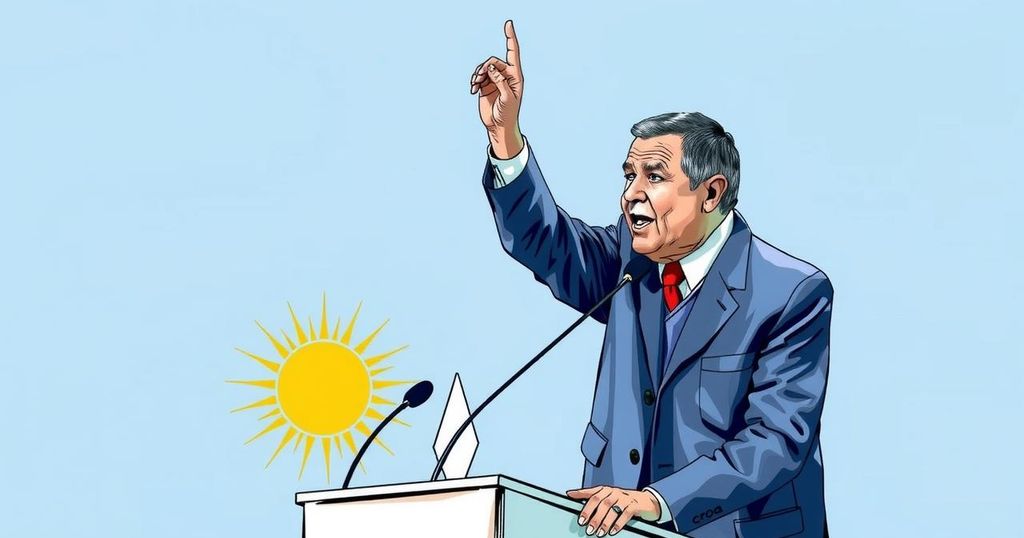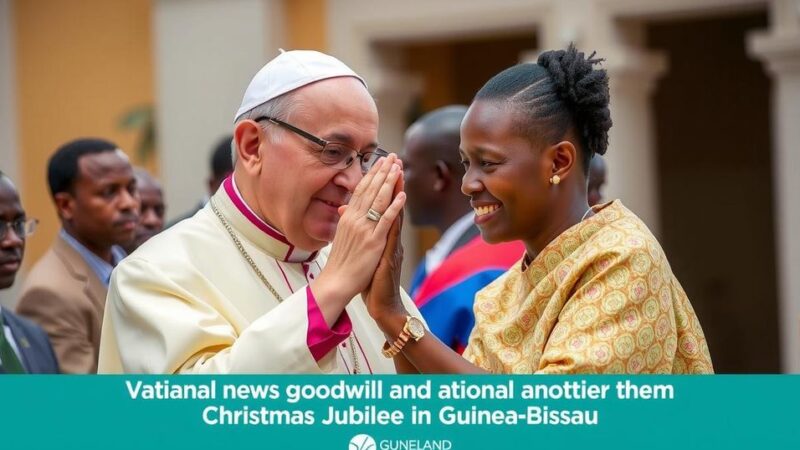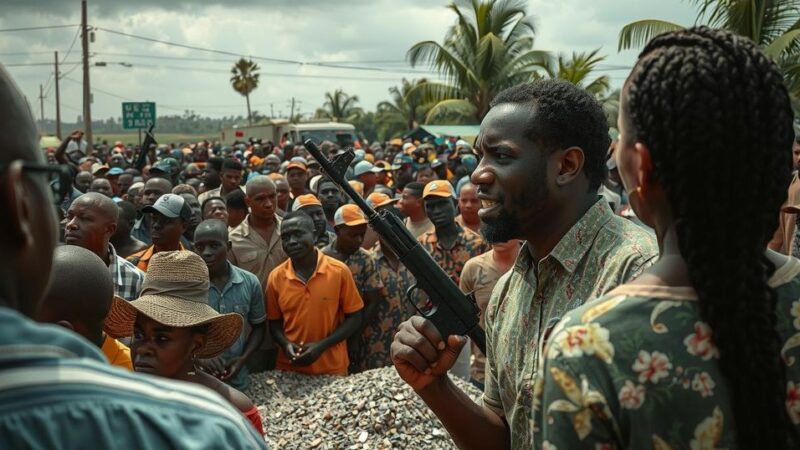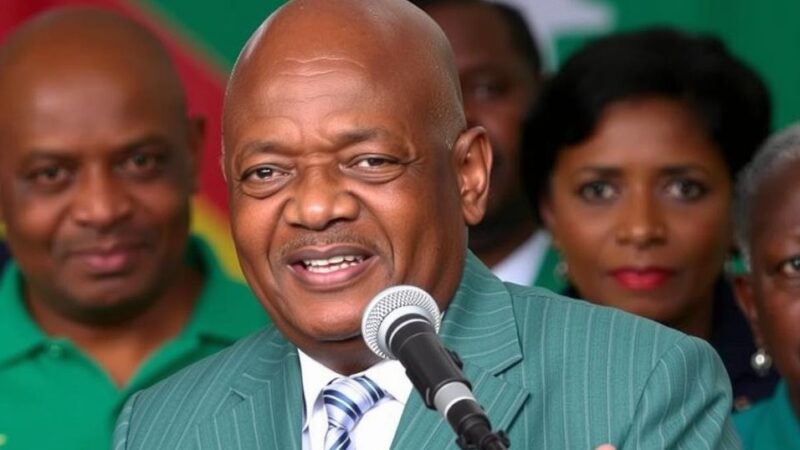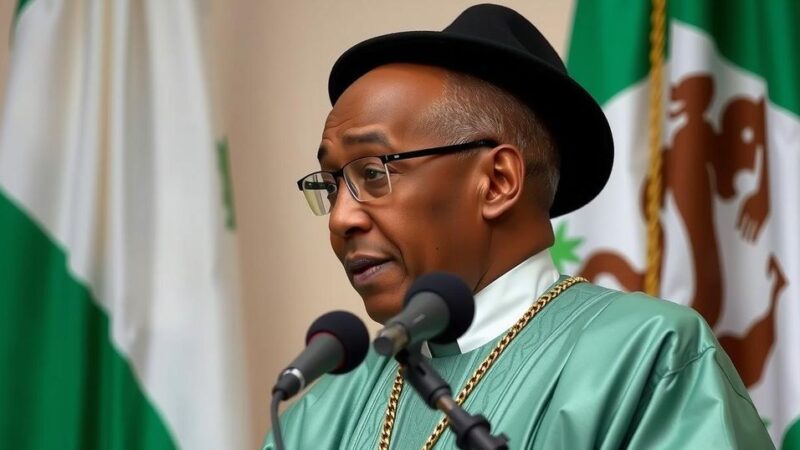Uruguay’s presidential election has advanced to a runoff after Yamandú Orsi, the center-left candidate, received the most votes but did not achieve the 50 percent required for a win. Álvaro Delgado, representing the center-right coalition, trails behind as both candidates prepare for the final election on November 24. Orsi’s platform emphasizes strengthening social safety nets in response to the country’s economic challenges.
Uruguay’s recent presidential election has proceeded to a runoff scheduled for November 24. The initial round of voting concluded with Yamandú Orsi, a former center-left mayor and educator, securing the highest percentage of votes but falling short of the requisite 50 percent for an outright victory. With approximately 80 percent of the votes counted, Mr. Orsi received between 42 and 44 percent, significantly leading Álvaro Delgado, the candidate representing the current center-right governing coalition, who garnered around 27 to 28 percent of the votes. Both candidates expressed their anticipation of facing one another in the upcoming second round, with Mr. Orsi representing the Broad Front alliance, which previously held power from 2005 to 2019. His leadership campaign is perceived as a response to a growing demand for enhanced social welfare in one of the most economically challenging nations in Latin America. Addressing thousands of supporters in Montevideo, Mr. Orsi indicated the urgency of the final campaign period, stating, “We are going in for these 27 days.”
The context of Uruguay’s presidential election reveals a political landscape where social policies and economic stability are of paramount importance to the electorate. Historically, the Broad Front alliance has played a significant role in shaping social safety nets in Uruguay. The current political scenario reflects a broader trend in Latin America, where voters are increasingly advocating for more significant governmental support due to the high cost of living and economic challenges. The second round of this election represents a critical moment for both candidates as they strive to secure the necessary support to lead the country.
In conclusion, the impending runoff in Uruguay’s presidential election highlights the critical issues of governance and social welfare at play. With Yamandú Orsi leading the initial round of voting but failing to secure a majority, the political landscape remains competitive. The outcome of the November 24 runoff will significantly influence the future direction of Uruguay’s policies, particularly concerning social support and economic strategies.
Original Source: www.nytimes.com

